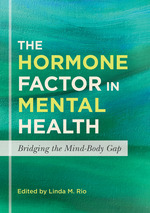From Linda M. Rio MA – As another year winds down and new numbers appear on our calendars, this can be an opportune time to look back, then forward. Each person’s experiences this year are, of course, unique, but the “family” of those with pituitary disorders does have some commonalities. First, it is a family in that many shared perceptions, fears, medical and sometimes mental health symptoms, and experiences are complex for those who haven’t had such challenges to their endocrine system. As a member of this unique family, there are things only those within or very closely related can understand. I think that looking at pituitary illness as belonging to a family can possibly help to reframe and redirect toward helpful, positive connections.
One of the often-reported symptoms of pituitary disorders is actual isolation or a profound feeling of isolation. In the last couple of years, we have all had a level of isolation on a worldwide scale never experienced previously due to the pandemic. But even before COVID, some pituitary patients did withdraw from work, family, friends, and the world. Some of this may be due to biological changes due to the impact and role of certain hormone levels that help humans to connect with others. For others, the withdrawal results from having not been believed, heard, or validated for their physical and psychological/emotional symptoms. After a while, some just give up. But, thanks to the internet, those who might have totally withdrawn from life sometimes find connections to those “in the family” of pituitary disorders through social media, support groups, conferences, and other means specifically for patients. Even a Google search can at least provide enough information to know others do exist with similar experiences. Hopefully, knowing there are others does help to feel less “crazy”. However, from the many patients I’ve spoken with, the feeling of “Am I crazy?” can still exist even long after being told there are genuine, biological reasons for the feelings. Doubting one’s own perceptions is common but painful.
The end of a year can be an excellent time to take account of what social connections to the pituitary family, actual family, friends, etc. have been made. Humans are social animals that need other humans for our very survival. Very few humans thrive in isolation. And, for something that can affect so much of the human experience: physically, emotionally, cognitively, relationally, and spiritually as a disorder of the endocrine system, the benefit of human-to-human connections is even more apparent. So, it might be time to look back at what connections and resources were made, could have been made, and those that might be possible in the new year. Any illness can feel like an attacker has victimized the direct patient and all who surround the person with the illness. Having as much control as possible and using inner and external support systems can help one to ask oneself some key questions meant for personal reflection. The end of a year/start of another is an ideal time to ask:
-
- Did I take advantage of the resources available offered by other patients with my same or similar illness?
- Have I learned as much as possible about my particular disorder so that I can work with my doctor(s) as a team?
- Have I taken advantage of all that PWN has to offer?
- What have been the greatest challenges faced by my pituitary disorder this year?
- What is the greatest gift my pituitary disorder has given to me?
- Have I discussed with my family and close friends what it is like to have a pituitary disorder so that they might understand and connect with me, especially when I’m having difficulties related to my illness?
- Have I considered individual, couple, and family psychotherapy to help myself and my family understand, cope, and thrive?
- How can I build connections that offer value, peace, and healing to me and others?
- What can I do more/less next year to feel more empowered to best manage my illness?
It shouldn’t only be for pituitary patients to assess how well they have connected and the quality of those connections. Professionals serving this population also need to take the time to look back at accomplishments as well as hopes and plans for the future in order to continuously improve not only the technical skills of their profession but ways to serve their patients better, and family members, medical and mental health communities through education and training. Pituitary World News was developed, in part, as a way for Dr. Blevins, Jorge Faccinetti, and other esteemed medical professionals to impart top-quality knowledge and information in a new and vibrant way. As this innovative site has evolved over the years, it allows for two-way communication and connection with patients and others on the Live Talk Thursdays shows. Adding Spanish language versions of some programs continues to expand the reach of much-needed information to a greater expanse of the world. And readers may not be aware that PWN reads feedback on podcasts, articles posted, presentations, and more to not only reach more and more who may need vital information but to know what is helpful or not and try to incorporate such feedback whenever possible.
The end of a year typically brings opportunities for holiday gatherings with family, friends, work, and others. Such gatherings can be stressful but also offer valuable opportunities to use those connections in whatever ways best serve you by mindfully choosing which gatherings and what people are positive and healing and which are not. Especially when dealing with the stress on the body that a pituitary disorder can bring, it is important to be choosy and careful in finding quality folks to connect with that bring joyful good energy into your life. Healing comes from good medicine but also from the inner medicine we can give ourselves each day by doing for ourselves and others the things that promote emotional and psychological peace.
A final note about taking stock at the end of a year: after spending some alone time pondering the last year and what goals and desires you may have for the coming year, it can be an amazing experience to find people intimate in your life to share these thoughts. People do not have to have a pituitary tumor or other neuroendocrine disorder to benefit from self-reflection and sharing. Personal connections can be deepened by opening up about the above questions (and more). And, by allowing yourself to be vulnerable to share pieces of yourself, you may be offering the greatest holiday gift of all!
 Linda M. Rio, M.A., LMFT, is a PWN contributor and author. Her latest book, “The Hormone Factor in Mental Health,” is available through Amazon.com and other major booksellers. We thank Linda Rio, Marriage and Family Therapist, for providing this critical information and being a valued contributor to our publication. Read Linda’s past articles on PWN and learn more at www.lindamrio.com.
Linda M. Rio, M.A., LMFT, is a PWN contributor and author. Her latest book, “The Hormone Factor in Mental Health,” is available through Amazon.com and other major booksellers. We thank Linda Rio, Marriage and Family Therapist, for providing this critical information and being a valued contributor to our publication. Read Linda’s past articles on PWN and learn more at www.lindamrio.com.
© 2022 – 2024, J D Faccinetti. All rights reserved.
